If you’ve ever visited Florida or any sunny state, you’ll have noticed the abundance of pool screens. You may be wondering why these screens are covering the pools or how they affect your sunbathing.
Do pool screens block UV rays? You can definitely tan through a pool screen. The fine mesh material is designed to keep out irritants like bugs, leaves, and debris but let the sun through. However, that also leads to a higher risk of sunburn and UV damage. Some materials like polycarbonate can block UV rays and prevent tanning.
Read on to learn more about pool screens and the steps you need to take before tanning next to a pool.
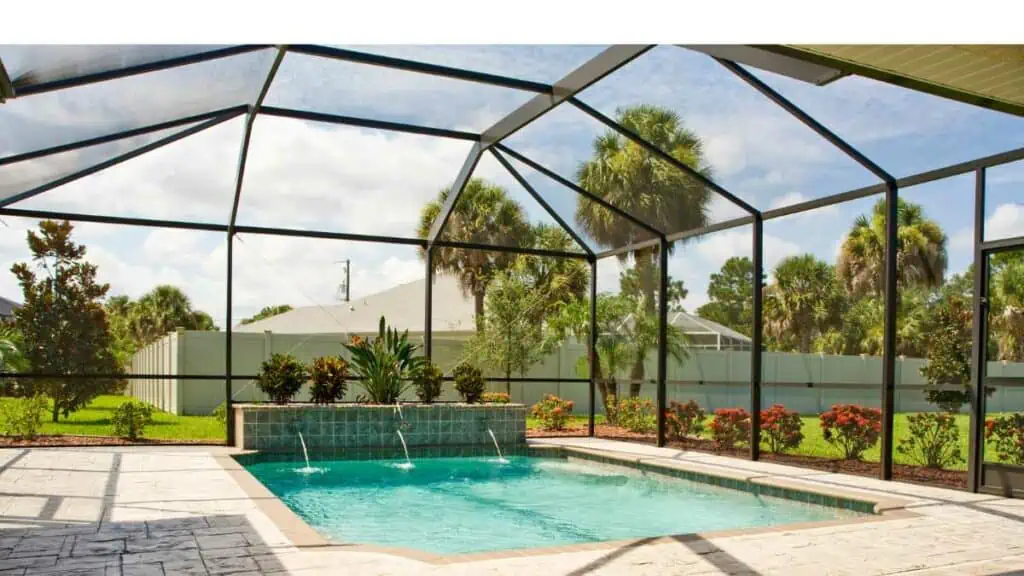
What is a pool screen?
Fine mesh screens are set up to cover pools for many reasons. Their main job is to keep the water clean, keeping out leaves, debris, and bugs. However, depending on the area, they keep out small animals like birds, snakes, lizards, raccoons, ducks and possums.
In states like Louisiana, Florida, or Alabama, a pool screen can keep alligators out of your pool, which is a real risk in those areas. Overall, having a screen keeps your pool in better shape and makes it easier for you to relax and enjoy swimming in your backyard!
Available in various colors and sizes, pool screens can filter the sun’s rays, increase privacy, protect outdoor furniture from damage, and create an enjoyable bug-free environment.
They also help maintain chlorine levels in the water and shield your pool from rain and wind.
Can you tan through a pool screen?
Pool screens do not keep out the sun since the mesh has no reflective properties.
It allows all of the sun’s rays through so you can easily tan through the screen, whether you’re lounging next to the pool or swimming in the water. If you want to tan while swimming, just ensure you’re in the pool’s shallow end.
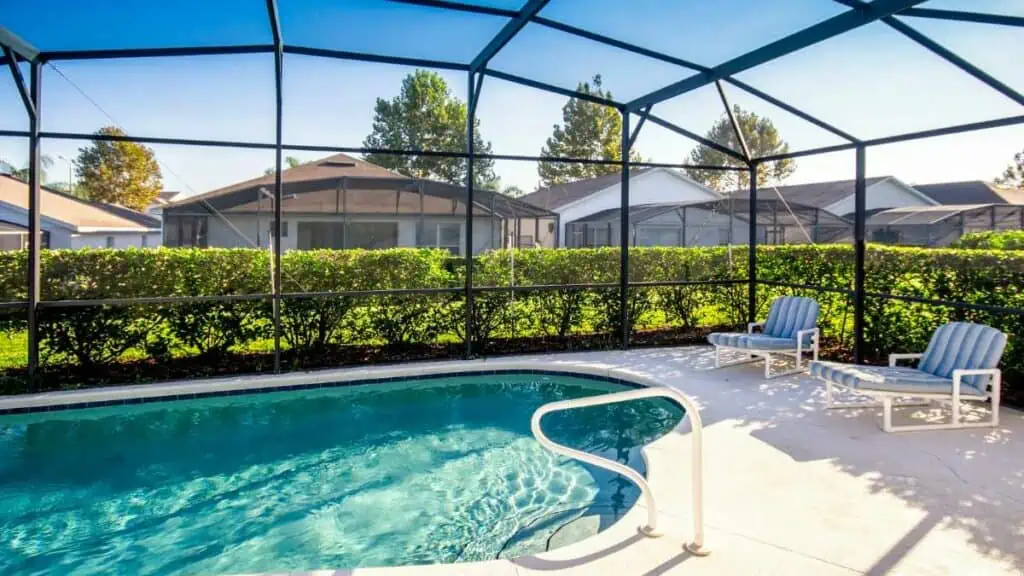
Can you get sunburn through a pool screen?
The exact percentage of UV rays passing through the screen will vary depending on the company and material you’re using. That said, most mesh screens do not offer 100% protection against UVA and UVB beams, which means you can get sunburned through a pool screen.
Often simply seeing a screen puts people at ease, and they forgo sunscreen. But that’s a trap! If you don’t use sunscreen, the UV rays will give you a sunburn, whether sitting by the pool or swimming in the water.
So definitely remember to put on your sunscreen.
Do pool screens block UV rays?
The mesh pool screen does not protect you from UVA or UVB rays. Ultraviolet radiation can have immensely harmful effects, including skin damage, wrinkles, rashes, liver spots, eye problems, cataracts, and skin cancers.
The only solution is to cover all exposed parts of your skin with sunscreen that has a high SPF rating. Apply your sun protection 15 minutes before you go to the pool, regardless of whether you are swimming or sitting next to the pool.
In contrast, it is interesting to note that even glass window panes only absorb 97% of UVB and 37% of UVA beams from the sun. That means sitting near a glass door or window can still expose you to harmful ultraviolet radiation too and lead to sunburn. If you are visiting or living in a sunny area, SPF protection in the 30 to 50 range is your best bet!
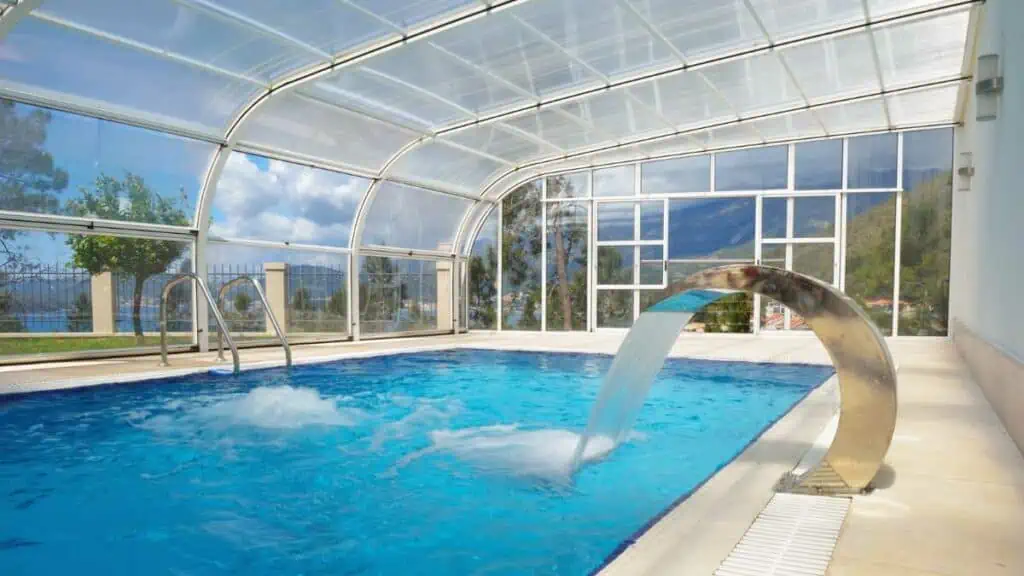
What are solar pool screens?
Regular pool screens are made of an ordinary mesh material that does not offer sun protection. However, special solar screens made with high-tech materials like Phifer and SunTex are designed to filter harmful UV rays.
That said, their low protection is still not enough to completely protect you from UV radiation and sunburns. While a solar-approved pool screen does have some benefits, at the end of the day, you still need to apply sunscreen to ensure skin safety.
These solar screen enclosures also help increase the life of chlorine in pools which is degraded by UV rays.
Polycarbonate enclosures, or screens, block almost all harmful UVA and UVB rays. If you’re using this material, you won’t be able to tan or get vitamin D from soaking in the sun. On the other hand, you are also safe from sunburn, skin rashes, cancers, and any other ultraviolet skin damage.
FAQs
Can you get a tan through mesh?
You can get a tan through the mesh of a pool screen as mesh hardly reduced the sun’s UV rays at all. So you must take care and use sunscreen to protect your skin.
Do you tan faster in the pool or laying out?
If you are floating in the pool then you may tan faster than lying by the pool as to some extent the sun’s rays will reflect off the surface. If you are standing in the pool then you will not tan faster as the water will block the pool’s rays from getting to your body to a degree.
Do pool screens keep out mosquitoes?
Fortunately, fully enclosed pool screens will keep mosquitoes out and allow you to swim or lounge around the pool without getting bitten. Of course, a pool screen will also keep out other bugs.
Final thoughts
Can you get sun tan through screened pool? If you’re trying to decide whether to buy a pool screen, you can tan through a screen. Having a covered pool will make your tanning experience much easier and more relaxing. You won’t have to worry about bugs or small animals entering the pool. You also won’t need to clear leaves out of the water.
In addition to the comfortable tanning experience, getting a pool screen also makes cleaning and maintenance a lot easier. On the flip side, you’ll still have to deal with all the regular hassles of tanning in the sun. Burns and ultraviolet exposure are both concerns you will have to deal with.
Some materials like lanai screens, Phifer, and SunTex are designed to either filter UV beams or block some of the sun’s rays. But you must determine exactly what percentage of rays these screens block. The protection offered is normally between 60 to 80% depending on the material, so you’ll still need to use ample sunscreen.
The only material that blocks all UVA and UVB rays is polycarbonate. These screens filter the sun so you can enjoy the light and heat without tanning or burning. At the end of the day, it all comes down to the type of screen that’s set up and the material used.
So the features and effects will vary on a case-by-case basis. Keep yourself informed and aware to ensure the safety of your family!

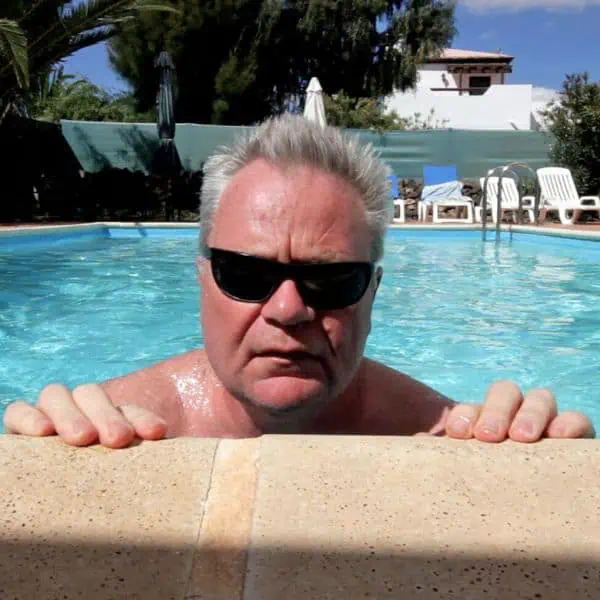
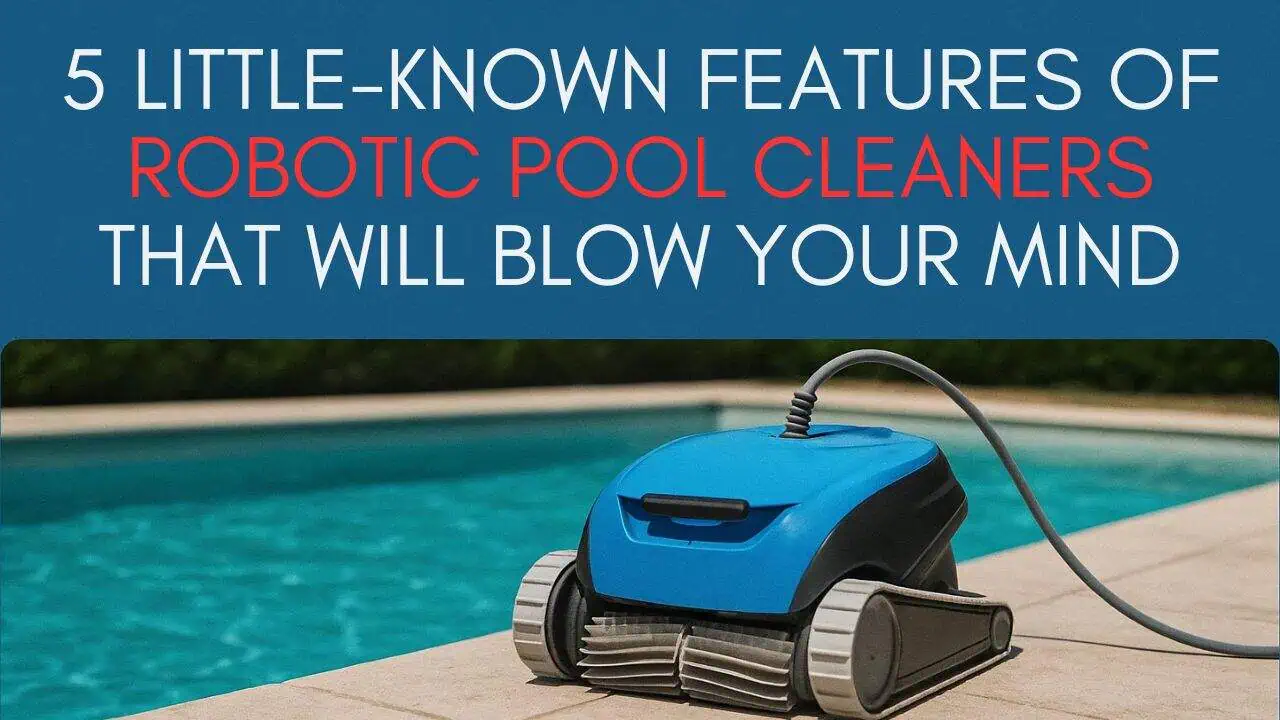
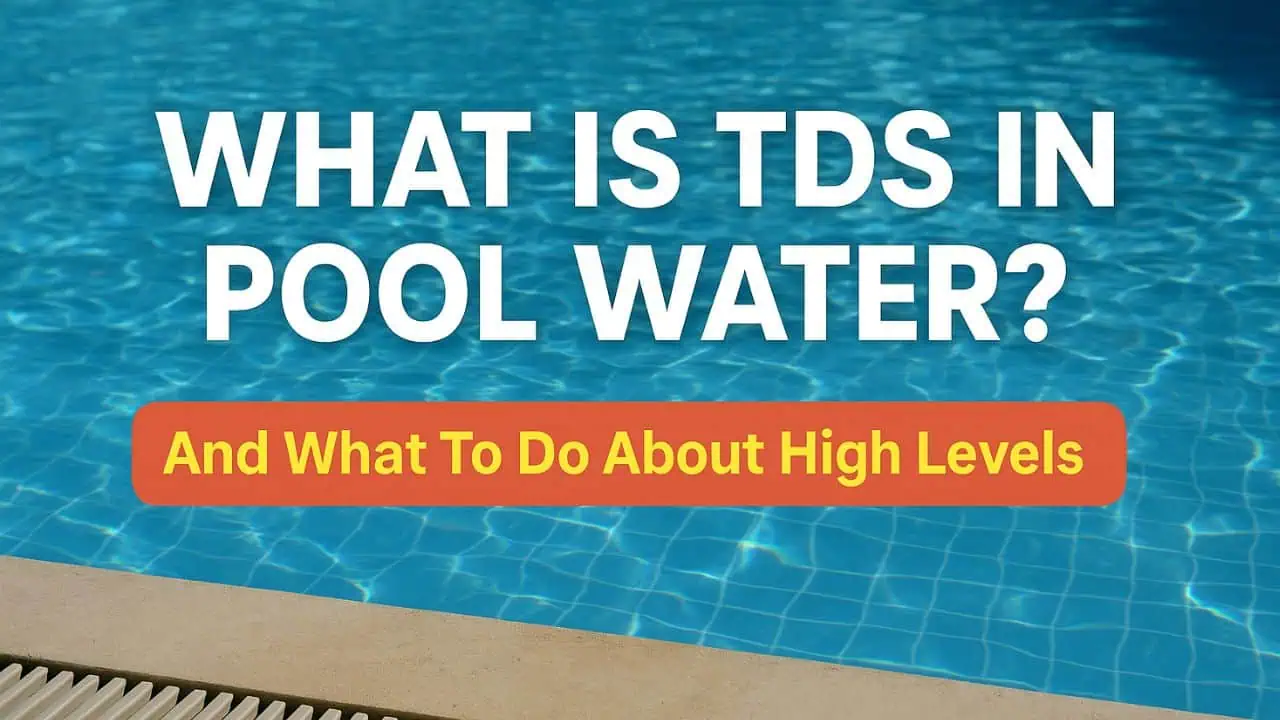
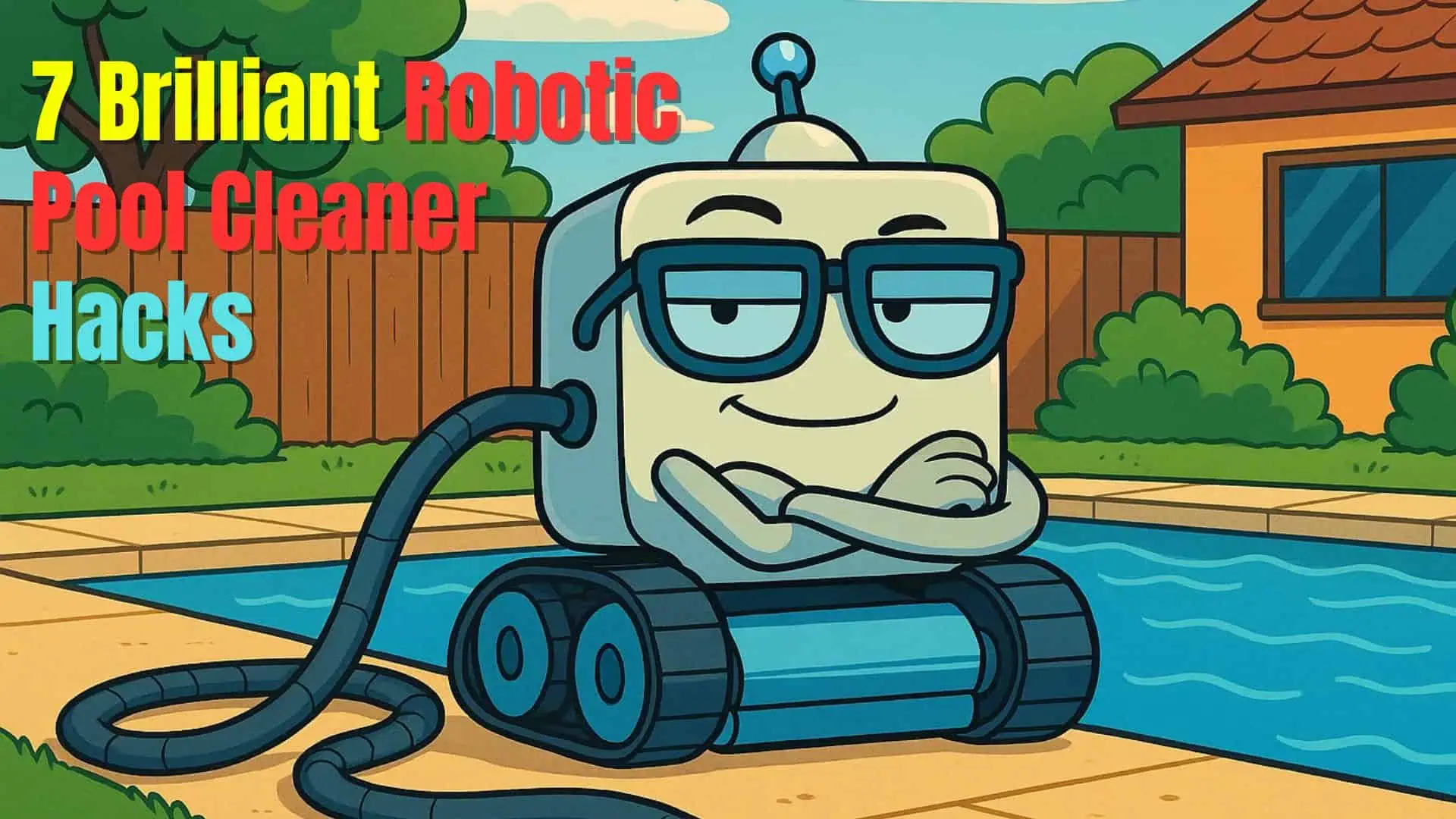
Leave a Reply